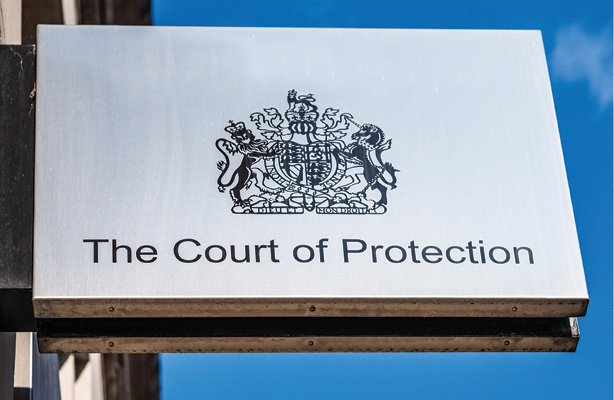If my relative has lost mental capacity what are my options?

You may need to make decisions for a friend or relative who has lost their mental capacity to make decisions for themselves and where there is no Lasting Power of Attorney (LPA) or Enduring Power of Attorney (EPA) is in place. The answer is to apply for a deputyship to the Court of Protection.
What is Deputyship?
A deputy is someone who is appointed by the Court of Protection to make decisions on behalf of someone unable to do so on his or her own.
Once appointed, a deputy is responsible for making decisions on behalf of the person who has lost capacity until either that person dies or can make decisions on his or her own again.
There are two distinct types of deputies: those who look after property and financial affairs and those who look after a person’s health and welfare.
Who can be a deputy?
The deputy is often a professional such as a solicitor or a representative of a local authority.
A deputy can also be a relative or close friend of the person who needs help making decisions. He or she must be aged over 18.
It is possible to appoint more than one person as a deputy?
If no one is willing or able to take on the role of deputy then The Court of Protection may appoint a ‘panel deputy’ – someone with specialist knowledge of mental capacity law – to look after the incapacitated person’s financial affairs.
How do you prove someone has lost capacity?
The Court of Protection refers to the to establish if someone can make their own decisions or not.
What Types of Deputyship are there?
There are two types of deputyship which the Court of Protection can grant:
1. Deputyship for property and affairs
2. Deputyship for personal welfare
What if someone has capacity but is at risk of losing it?
The court will not appoint someone as a deputy if a person can make his or her own decisions. If, for example, someone has the early signs of dementia, they should make a lasting power of attorney instead.
What is the Court of Protection?
The Court, located in London, issues decisions through district judges and occasionally High Court judges. It specialises in making financial and welfare decisions on behalf of individuals who are unable to make such decisions themselves due to a lack of mental capacity.
The Court of Protection is responsible for:
How do I choose which type of deputyship to apply for?
The type of deputyship you are given will depend on your particular circumstances and that of the person who lacks capacity and the process of managing money, property, and personal welfare in the role of deputy can be an extremely complex and stressful time.
How do I apply for Deputyship?
Garner & Hancock can guide you through the process and apply on your behalf to the Court of Protection.
Our specialised team can advise you on the processes involved in applying to the Court of Protection and how an appointed deputy makes sure they fulfill the duties associated with this role.
How long will the process take?
The application process can take several months to complete but most creditors, nursing homes and utility companies are sympathetic to the procedures involved and will wait for payment as long as they are kept fully informed.
Will there be a court hearing?
Most often this is a paper-only exercise. But if the matter is unusual or someone has objected to the deputyship or more than one has shown interest then there is a court hearing. Garner & Hancock has experience in representing client at Court.
What sort of things can and should a deputy be able to do once deputyship has been granted?
We can help you with your role as deputy and our services include:
What happens once the Deputyship is granted by the court?
Deputyships require regular reviews as circumstances can shift, necessitating adjustments to your decision-making powers. As a deputy, you have continuous responsibilities, and the Office of the Public Guardian will consistently monitor your actions.
What if I do not wish to be a deputy?
Where an individual who does not have a friend or relative who wishes to take on the role of deputy, it might be appropriate for a professional to be appointed.
Our team dedicated to Elderly and Vulnerable Clients consists entirely of STEP members who represent you and your loved ones with both sensitivity and professionalism.
Request for a Legal Consultation
Garner & Hancock realise that the prospect of pursuing a legal matter can be challenging, so we offer an initial phone consultation to discuss your options, and to give you information that will help you make the right choices affecting your case.
How Can We Help?
We are here to help! Feel free to contact us anytime for a consultation on your legal matters.

